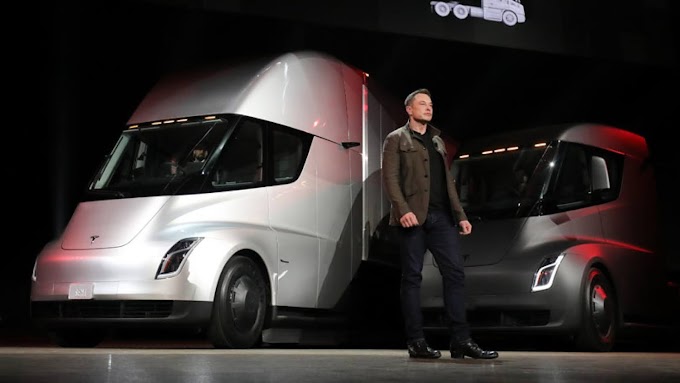Conglomerate in Germany
Franz Haniel & Cie.
Franz Haniel & Cie. GmbH is a German family-owned investment holding company headquartered in Duisburg, Germany. Haniel was founded in 1756 in the city of Ruhrort, now Duisburg. Today the company is one of Europe's largest privately owned family businesses. The Haniel family consists of more than 600 family members and is considered one of the wealthiest families in Germany.
Freudenberg Group
The Freudenberg Group is a German family-owned diversified group of companies whose products include housewares and cleaning products, automobile parts, textiles, building materials, and telecommunications. Its headquarters are in Weinheim, Baden-Württemberg, and it has production facilities in Europe, Asia, Australia, South and North America. The parent company was founded in 1849 as a producer of leather goods. Currently the company is owned by stock holders who are all decedents of the original founder, most of which are now affluent families that live in primarily Europe or North America.
Gazprom Germania
GAZPROM Germania GmbH (Russian: ГАЗПРОМ Германия ГмбХ), a company registered in Berlin, Germany, is headquarters of a diversified conglomerate, GAZPROM Germania Group, comprises 40 entities operating in more than 20 countries in Europe, Asia and North America. It is a 100% subsidiary of the world's largest natural gas company, Gazprom.
Reichswerke Hermann Göring
Reichswerke Hermann Göring was an industrial conglomerate in Nazi Germany. It was established in July 1937 to extract and process domestic iron ores from Salzgitter that were deemed uneconomical by the privately held steel mills. The state-owned Reichswerke was seen as a vehicle of hastening growth in ore mining and steel output regardless of private capitalists' plans and opinions, which ran contrary to Adolf Hitler's strategic vision. In November 1937, Reichsminister of Aviation Hermann Göring obtained unchecked access to state financing and launched a chain of mergers, diversifying into military industries with the absorption of Rheinmetall. Göring himself supervised the Reichswerke but did not own it in any sense and did not make personal profit from it directly, although at times he withdrew cash for personal expenses.
After the Anschluss, the Reichswerke absorbed Austrian heavy industries, including those owned by private German investors. The cluster of steel mills and supporting companies in Linz became its most important asset. Nazi leadership regarded captured assets as the property of the state and were not willing to share the spoils with German businesses. After the German occupation of Czechoslovakia, the Reichswerke absorbed between 50 and 60 per cent of Czech heavy industries. The pattern was repeated in occupied Poland, France and the Soviet Union. The Reichswerke operated captured assets as far from its base as Liepāja in Latvia and Donetsk in eastern Ukraine. It provided one-eighth of German steel output during the Second World War and created a Nazi-controlled military complex that was independent of private interests. By the end of 1941 the Reichswerke became the largest company in Europe and probably in the whole world, with a capital of 2.4 billion reichsmarks and about half a million workers.
In 1942 the Reichswerke's inefficient corporate structure was reduced in size. Its weapons and munitions assets were integrated into the Ministry of Armaments; the mining and steel core of the Reichswerke continued operation under Göring's supervision until the end of the war, albeit at a loss. The conglomerate was dismembered by the Allies in 1944–1945, but the Salzgitter plant continued operations as Reichswerke until 1953. The Reichswerke logo, which resembled Göring's coat of arms, remained in use by Peine+Salzgitter until the middle of the 1980s.
Schörghuber Unternehmensgruppe
Schörghuber Unternehmensgruppe (SUG) is a company owned by Schörghuber Stiftung & Co. Holding KG (SHKG). It operates nationally and internationally in the fields of beverages, hotels, salmon farming and processing, and construction and real estate.
Siemens
Siemens AG (German pronunciation: [ˈziːməns] or [-mɛns]) is a German multinational conglomerate and a focused technology corporation headquartered in Munich and the largest industrial manufacturing company in Europe with branch offices abroad.
The principal divisions of the corporation are Industry, Energy, Healthcare (Siemens Healthineers), and Infrastructure & Cities, which represent the main activities of the corporation. The corporation is a prominent maker of medical diagnostics equipment and its medical health-care division, which generates about 12 percent of the corporation's total sales, is its second-most profitable unit, after the industrial automation division. The corporation is a component of the Euro Stoxx 50 stock market index. Siemens and its subsidiaries employ approximately 385,000 people worldwide and reported global revenue of around €87 billion in 2019 according to its earnings release.
Siemens Energy Sector
The Siemens Energy Sector was one of the four sectors of German industrial conglomerate Siemens. Founded on January 1, 2008, it generated and delivered power from numerous sources including the extraction, conversion and transport of oil and natural gas in addition to renewable and alternative energy sources. As of October 1, 2014, the sector level has been eliminated, including the Siemens Energy Sector.
Thyssen AG
Thyssen was a major German steel producer founded by August Thyssen. The company merged with Friedrich Krupp AG Hoesch-Krupp to form ThyssenKrupp in 1999.
ThyssenKrupp
ThyssenKrupp AG (/ˈtɪsən.krʊp/, German: [ˈtʏsn̩ˌkʁʊp]; stylized as thyssenkrupp) is a German multinational conglomerate with focus on industrial engineering and steel production. It is the result of the 1999 merger of Thyssen AG and Krupp and has its operational headquarters in Duisburg and Essen. The company claims to be one of the world's largest steel producers; it was ranked tenth-largest worldwide by revenue in 2015. It is divided into 670 subsidiaries worldwide. The largest shareholders are Alfried Krupp von Bohlen und Halbach Foundation and Cevian Capital. In addition to steel production, ThyssenKrupp's products range from machines and industrial services to high-speed trains, elevators, and shipbuilding. Subsidiary ThyssenKrupp Marine Systems also manufactures frigates, corvettes, and submarines for the German and foreign navies.
In 2018, ThyssenKrupp announced that the company would split into two companies, ThyssenKrupp Industrials, and ThyssenKrupp Materials. The split was supposed to take effect beginning 1 October 2019; however, in May 2019, it was revealed that ThyssenKrupp cancelled its plans to split the company into two.
Volkswagen Group
The Volkswagen AG (German: [ˈfɔlksˌvaːgn̩] , known internationally as the Volkswagen Group, is a German multinational automotive manufacturing corporation headquartered in Wolfsburg, Lower Saxony, Germany, and since the late 2000s is a publicly-traded family business majority owned by Porsche SE, which in turn is half-owned but fully owned by the Austrian-German Porsche and Piëch family. It designs, manufactures, and distributes passenger and commercial vehicles, motorcycles, engines, and turbomachinery, and offers related services, including financing, leasing, and fleet management. In 2016, it was the world's largest automaker by sales, overtaking Toyota and keeping this title in 2017, 2018 and 2019, selling 10.9 million vehicles. It has maintained the largest market share in Europe for over two decades. It ranked seventh in the 2018 Fortune Global 500 list of the world's largest companies.
The Volkswagen Group sells passenger cars under the Audi, Bentley, Bugatti, Lamborghini, Porsche, SEAT, Škoda, RUF and Volkswagen marques; light commercial vehicles under the Volkswagen Commercial Vehicles brand; motorcycles under the Ducati brand; and heavy commercial vehicles via the marques of listed subsidiary Traton: MAN, Scania, Volkswagen Caminhões e Ônibus, and Navistar. It is divided into two primary divisions—the Automotive Division and the Financial Services Division—and as of 2008, had about 342 subsidiary companies. Volkswagen also has two major joint ventures in China (FAW-Volkswagen and SAIC Volkswagen). The company has operations in roughly 150 countries and operates 100 production facilities across 27 countries.
Volkswagen was founded in 1937, to manufacture the car that would become known as the Beetle. The company's production grew rapidly in the 1950s and 1960s, and in 1965, it acquired Auto Union, which subsequently produced the first postwar Audi models. Volkswagen launched a new generation of front-wheel drive vehicles in the 1970s, including the Passat, Polo, and Golf; the last became its bestseller. Volkswagen acquired a controlling stake in SEAT in 1986, making it the first non-German marque of the company, and first acquired control of Škoda in 1994, then of Bentley, Lamborghini, and Bugatti in 1998, then of Ducati, MAN, and Porsche in 2012, and finally of Traton in 2013. The company's operations in China have grown rapidly in the past decade with the country becoming its largest market. Since 1 January 2021, the Lower Saxony state owns a 20% share of Volkswagen.
Volkswagen Aktiengesellschaft is a public company and has a primary listing on the Frankfurt Stock Exchange, where it is a constituent of the Euro Stoxx 50 stock market index, and secondary listings on the Luxembourg Stock Exchange and SIX Swiss Exchange. It has been traded in the United States via American depositary receipts since 1988, currently on the OTC Marketplace. Volkswagen delisted from the London Stock Exchange in 2013. The government of Lower Saxony holds 12.7% of the company's shares, granting it, by law, 20% of the voting rights.















0 Comments